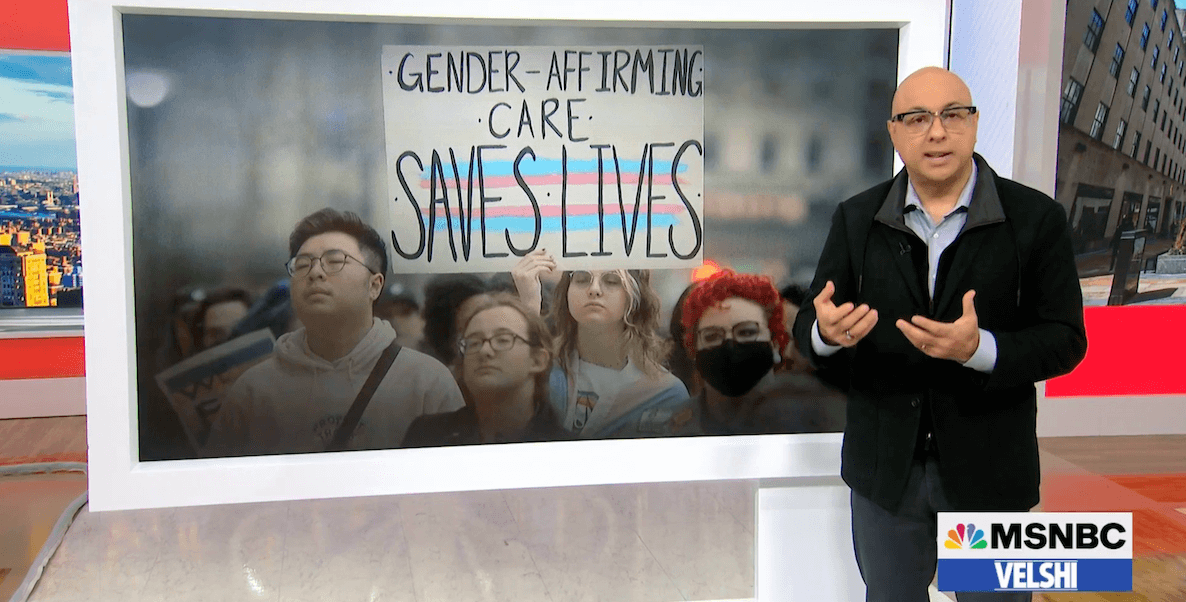In the first four months of 2023, Ali Velshi reports, more than 400 bills targeting transgender people have been introduced across the country. More than one-third of those bills, according to the ACLU, specifically aim to ban or limit access to gender-affirming care for youth.
An NBC poll found 28 percent of Americans say they know a trans person closely. The other 73 percent say they do not know someone who identifies as transgender.
Here’s the problem: “In that same poll, they found that 48 percent of Americans think that society has gone too far in accepting transgender people, compared to 43 percent who believe we need to be more accepting.” These percentages point to the very strong possibility that Americans who do not know anyone who is trans also do not understand transgender healthcare — also known as gender-affirming care.
Gender-affirming care: defined
Gender-affirming care is not one thing. It begins with giving a child (or anyone) who is experiencing gender dysphoria access to talk therapy. Therapy provides a pathway for children to potentially change their hairstyle, or wear different clothes.
The next step in gender-affirming care would be for the child to take puberty blockers, medication which, in preventing the development of secondary sex characteristics, facial hair, breasts, etc., “buys time” for the child, with professional supports, to solidify their path ahead. Should that path continue closer to adulthood, gender-affirming care could mean hormone replacement therapy and, somewhere down the line, surgery that confirms the gender the person identifies with.
Gender-affirming care is deemed medically necessary by the American Medical Association, American Psychiatric Association, American Association of Pediatricians — 2 million American doctors in all. And it really does save lives.
“Transgender and non-binary youth face levels of depression and suicide that are much higher than any other group,” says Velshi. “More than half of trans youth have seriously considered ending their lives. According to a study by the American Medical Association, that number decreases by 73 percent when those those kids receive gender-affirming care.
A 73 percent decrease is an astounding outcome. No drug or antidepressant even comes close to having that kind of impact. So this is life-saving care, pure and simple.”
LISTEN: ALI VELSHI ON GENDER-AFFIRMING CARE
WATCH: ALI EXPLAIN GENDER-AFFIRMING CARE
![]() MORE FROM MSNBC’S ALI VELSHI
MORE FROM MSNBC’S ALI VELSHI



